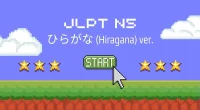Explains how to make Potential Forms and their grammar and usage!

How should we express the Potential Form, the equivalent of "can" or "able to" in English, in Japanese? This article explains the creation, grammar, and usage of the Potential Form in Japanese in an easy-to-understand manner for non-Japanese.
▼Goandup Picks Click here for recommended articles!
- Required before studying abroad! Goandup Nihongo+, an online Japanese language learning service
- This page introduces services for foreigners who wish to study in Japan or improve their Japanese language skills to learn Japanese online.
- Goandup Salon" community for foreigners living in Japan
- We introduce an online community where foreigners living in Japan can exchange information and interact with each other to support their life in Japan.
- Goandup Study" supports foreigners who want to study in Japan.
- This section introduces study abroad support services that provide comprehensive support to foreigners who wish to study in Japan, from preparation for study abroad to living in Japan.
- Where can I buy a prepaid SIM in Japan? Recommended SIM cards for foreigners are also introduced.
- How to purchase a prepaid SIM and suitable SIM cards for foreigners.
- The Complete Guide to Pocket Wi-Fi in Japan for Foreigners!
- We introduce how to select and recommend pocket Wi-Fi products that can be used conveniently in Japan.
- The Complete Guide to Finding a Job in Japan! Finding a job, changing jobs, and part-time work for foreigners
- This site provides foreigners who want to work in Japan with comprehensive information on how to find a job, recommended job sites, and other information necessary to find a job.
Grammatical Rules for Potential Forms in Japanese

Note that the rules for Potential Form in Japanese differ slightly from those in English.
In the possible form in English, you can add "can" or "able to" before the verb, and the verb itself does not change. On the other hand, the possible form in Japanese is,Changing verbsThis is expressed by The two main changes are the pattern of changing "~ru" to "~eru" and "~u (u)" to "~eru (eru)". However, only "shiru" and "kuru" do not fall into this pattern, but have exceptional changes as "can" and "come," respectively.
Furthermore, the verb itself does not change,Add "to be able to" after the verbThere is also a way to add "can" to the back of the verb. Both ways of changing the verb and adding "can be" to the back have basically the same meaning.
【 Japanese possible form rule 】
- Change "~ru" to "~able".
- Change "~u" to "eru".
- The only exceptions are "do" and "come."
- Add "~ can be" at the back.
Four ways to make Potential Forms (Potential Forms in Japanese)

Here are four ways to master the possible forms in Japanese. These methods are the key to applying the possible form to any verb.
1. Pattern of changing "~ru" to "~iru".
Verbs ending in "る" change to "られる" to create the possible form.
For example, "eat" becomes "eaten" and "see" becomes "seen," and this change indicates that the verb is capable of doing something.
| Native language | basic form | potential form |
| eat | Eat (taberu) | Edible (taberareru) |
| see, look, watch | See (miru) | Seen (mirareru) |
| wear, put on | Kiku (kiru) | Wearable (kirareru) |
| sleep | Sleep (neru) | Sleepable (nerareru) |
Example sentences using "~able
Fuji." is changed to "We can watch Mt. Fuji." by changing "watch" to "can see.
The same is true for the possible form "We eat delicious foods." Change "eat" to "can eat" and the sentence becomes "We can eat delicious foods.
| model sentence | romaji | Native language |
| Fuji. | Fujisan ga mirareru | We can watch Mt. |
| Delicious food available. | oishii ryouri wo taberareru | We can eat delicious foods. |
Words without "rasen" are also often used.
Ra-nuki word" is a possible form of the words "eatable" and "seeable" by omitting the "la" from the words "eatable" and "seeable". Although "ra-nuki" is not grammatically correct, it is often used by Japanese people in their daily lives.
2. Pattern of changing "~u" to "~eru".
For verbs that end with a "u" (which in romaji ends in "u"), the "u" is changed to "eru" to create the possible form.
For example, "hanasu" becomes "hanaseru" by changing the final "u" to "eru", and "kaku" becomes "kakeru". This way, there are many words that end in "u". This method is applicable to many verbs ending in "u" and enriches the expressive power of the Japanese language.
| Native language | basic form | potential form |
| talk, speak | Speak (hanasu) | Talking (hanaseru) |
| write | Write (kaku) | I can write (kakeru) |
| drink | Drink (nomu) | Drinkable (nomeru) |
| take | Toru (to take) | Toreru (toreru) |
Example sentences using "~eru" (to be able to)
To make "I speak Japanese." into a possible form, change "speak" to "speak" and say "I can speak Japanese. In the same way, "I write Kanji." can be made into a possible form by changing "write" to "can write" and saying "I can write Kanji.
| model sentence | romaji | Native language |
| I speak Japanese. | watashi wa nihongo wo hanaseru | I can speak Japanese. |
| I can write kanji. | watashi wa kanji wo kakeru | I can write Kanji. |
3.【 exception 】 possible forms of "do" and "come"
Basically all verbs can be formed in the possible form in the two ways described up to the previous section, with the exception of "do" and "come". They are "can" and "can come" (or colloquially, "can come"), respectively. They change to "can come." These exceptions require special attention and are examples of the flexibility of the Japanese language.
| Native language | basic form | potential form |
| do | Suru (suru) | Can be done (dekiru) |
| come | KURU (kuru) | Korareru |
4. pattern with "~ can be done" at the end

In addition to changing the verb, you can indicate ability or possibility by adding "can" to the back of the verb. When "can" is added, the verb does not change.
For example, "eat" can mean the same thing as "can eat" if it is written as "can eat. Similarly, "to speak" and "to do" are equivalent to "to be able to speak" and "to do," respectively.
This expression is preferred in more formal contexts and written language, and has the versatility to accommodate a wide range of verbs.
For those of you who want to further your studies at a Japanese language school

The Japanese language attracts attention from around the world for its rich expressiveness and profound culture. From movies, music, and literature to everyday conversation, learning Japanese is not only a way to acquire a new language, but also a gateway to a deeper cultural understanding and a broader perspective.
For those of you who want to study Japanese more seriously, enter higher education in Japan, or find a job in Japan, taking your Japanese language skills to the next level is the first step in turning your dreams into reality. There are approximately 700 Japanese language schools in Japan with various characteristics, but it is not easy to select the best school for you.
Therefore, we will do our best to help you choose the perfect Japanese language school to realize your goals and dreams! If you have any questions or concerns about Japanese language schools, please feel free to contact us using the inquiry form below.
We will provide you with the best support to meet your Japanese language learning goals. We hope that our support will make your Japanese language study more fulfilling and fruitful.
summary
This article explains the basic construction and usage of the Japanese Potential Form. The Japanese Potential Form, which has the same function as the English words "can" and "able to," is used to indicate whether something can be done. The main methods include changing "ru" verbs to "can", "u" verbs to "eru", and special variations of "do" and "come". The expression "can be" is another useful method that can be applied to all verbs.
By remembering these rules, you can greatly improve your ability to express yourself in Japanese. Possible forms are useful in a wide variety of situations, from daily conversation to formal documents, so make use of what you have learned this time to enrich your communication in Japanese.
If you would like to learn about other aspects of Japanese grammar, please refer to the following articles.
What are intransitive and transitive verbs in Japanese? Explaining the differences and how to distinguish between them for foreigners.






